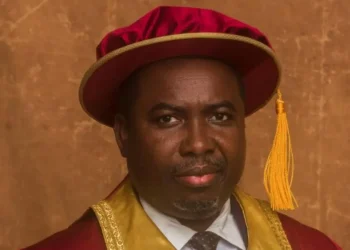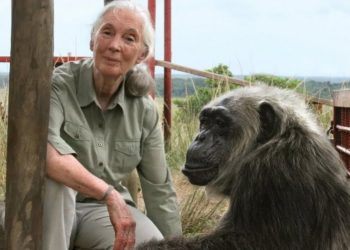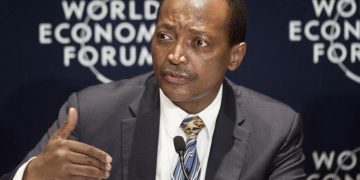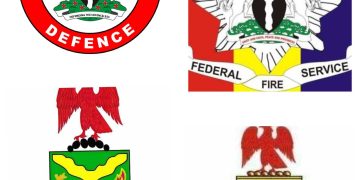David Bird has emerged as a central figure in Africa’s oil and gas renaissance with his appointment as the first standalone Chief Executive Officer (CEO) of the $20 billion Dangote Refinery and Petrochemicals complex.
A seasoned energy executive with over two decades of global experience, Bird’s leadership arrives at a decisive moment for Nigeria’s industrial future and the continent’s energy independence drive.
As Africa’s largest refinery project transitions from construction to full-scale operations, David Bird’s biography offers key insights into the man now tasked with one of the most transformative mandates in modern African economic history.
Early Life and Educational Background
David Bird was born in the United Kingdom and spent his early years cultivating a keen interest in mechanical systems and problem-solving, traits that would later define his approach to energy operations. Though he maintains a low public profile, Bird’s academic and professional accomplishments speak volumes about his discipline and technical expertise.
He studied Mechanical Engineering at the prestigious Imperial College London, one of the world’s leading engineering institutions. His time at Imperial exposed him to advanced refining technologies, industrial mechanics, and global energy frameworks.
Seeking to enhance his leadership and business acumen, Bird later pursued an MBA at Stanford Graduate School of Business in the United States. The combination of technical prowess and executive training would later empower him to lead complex, multibillion-dollar operations across continents.
Career Beginnings and Technical Roots
David Bird’s early professional career began in engineering and operational roles, with one of his earliest international assignments being with Hitachi in Japan, where he worked on industrial systems design. He also gained vital exposure to refinery operations at the SAPREF Refinery in South Africa, one of the country’s oldest joint-venture oil refineries.
These formative years helped him build a strong technical foundation in refinery mechanics, safety protocols, and systems optimization skills that would serve him throughout his international career in oil and gas.
17-Year Career at Shell
Bird’s breakthrough came when he joined Royal Dutch Shell, one of the world’s energy giants. Over a 17-year career with Shell, he held senior leadership roles across multiple continents, including Australia, Singapore, and the United States.
Key Highlights at Shell:
- Vice President of Shell’s Prelude Floating LNG Project in Perth, Australia-the world’s first and largest floating liquefied natural gas platform.
- Key leader in the commissioning and operations of the Motiva Refinery in Port Arthur, Texas – Shell’s largest refinery globally and one of the biggest in the U.S.
- Oversaw Shell’s Bukom Refinery in Singapore, managing a capacity of over 500,000 barrels per day (bpd) and handling multi-billion-dollar expansions and maintenance turnarounds.
Bird’s tenure at Shell was marked by his ability to lead large, capital-intensive projects while navigating complex regulatory and operational environments. His work consistently emphasized operational efficiency, safety, and long-term strategic planning.
Senior Executive Roles at Santos and OQ8
After leaving Shell, Bird joined Santos Ltd, a leading Australian oil and gas company, where he served as Senior Vice President of Production Operations and Supply Chain, based in Adelaide. There, he led key operational transformation efforts and managed upstream logistics for multiple fields and facilities.
He then moved to the Middle East, becoming Chief Executive Officer of Oman Oil & Kuwait Petroleum International’s joint venture (OQ8) in Muscat, Oman. This role saw him oversee one of the region’s most complex integrated downstream operations, enhancing his profile as a seasoned global executive in refinery leadership.
Leading Dangote Refinery – A Historic Appointment
In July 2025, David Bird was officially appointed CEO of the Dangote Refinery and Petrochemicals complex, Africa’s largest and most strategically vital industrial project. Located in the Lekki Free Trade Zone, Lagos, Nigeria, the refinery is designed to process 650,000 barrels of crude oil per day, with the capacity to meet Nigeria’s domestic fuel needs and generate significant exports.

Bird’s appointment marks the first time a non-Nigerian and independent CEO has been placed in charge of the refinery’s full operations, signaling a strategic move by Aliko Dangote, Africa’s richest man and Chairman of the Dangote Group, to professionalize and globalize the project.
Mandate and Responsibilities at Dangote Refinery
David Bird has been entrusted with a high-stakes mission:
- Optimize production output as the refinery begins full commercial operations.
- Resolve early-stage operational bottlenecks that have slowed production ramp-up.
- Oversee the refinery’s Initial Public Offering (IPO) plans, set for dual listings on the Nigerian Stock Exchange (NSE) and the London Stock Exchange (LSE) by 2026.
- Establish a pan-African export strategy, positioning Dangote products across West, East, and Central Africa.
- Enhance stakeholder confidence through robust corporate governance and transparency.
Bird reports directly to Aliko Dangote, ensuring alignment between executive strategy and the broader Dangote Group’s vision for economic transformation in Nigeria and across Africa.
Pan-African and Global Impact
Bird’s global experience in procurement, supply chain logistics, and refinery optimization uniquely positions him to lead the Dangote Refinery into the global energy value chain. Under his leadership, the refinery aims to:
- Reduce Africa’s dependence on imported refined petroleum.
- Promote intra-African trade under the AfCFTA (African Continental Free Trade Area).
- Attract global investors and technology partners to Nigeria’s downstream oil sector.
The refinery’s design enables flexible crude sourcing from the Middle East, Africa, and the Americas, offering resilience against geopolitical oil supply shocks. Bird’s mastery of managing large-scale supply networks, particularly in Asia and the Gulf, is critical to ensuring operational stability.
Recognition and Industry Endorsements
The African Energy Council (AEC) has praised Bird’s appointment as “strategically synchronised.” According to Reuben Nayam, Energy Analyst at AEC:
“David Bird’s appointment is not just about operational oversight; it’s about transforming how energy is sourced, refined, and delivered across the continent. With his track record and global network, Bird is ideally positioned to integrate Dangote Refinery into the global energy value chain.”
Personal Life
David Bird is known to be a private individual who keeps his personal life away from the media spotlight. However, colleagues and industry peers often describe him as a disciplined leader, meticulous planner, and team-oriented strategist who encourages the growth of local talent.

He is said to have a passion for engineering innovation, mentoring young professionals, and bridging global best practices with local realities—traits that will be pivotal in navigating the complexities of Nigeria’s downstream oil sector.
Net Worth and Compensation
While David Bird’s net worth is not publicly disclosed, his previous executive roles at Shell, Santos, and OQ8, combined with his current leadership of a $20 billion asset, place him among the top-earning oil executives in Africa. His role likely includes performance-based incentives aligned with the refinery’s production milestones and IPO readiness.
Conclusion
David Bird’s journey from a mechanical engineering student at Imperial College to the CEO of Africa’s largest refinery is a testament to technical brilliance, global leadership, and strategic vision. As he steps into the pivotal role of overseeing the Dangote Refinery, his leadership could redefine not just Nigeria’s oil sector, but the entire continent’s approach to energy independence, industrial development, and pan-African integration.
For now, all eyes remain on Lekki, where David Bird’s leadership is expected to unlock a new era of African industrial power; one barrel at a time.































